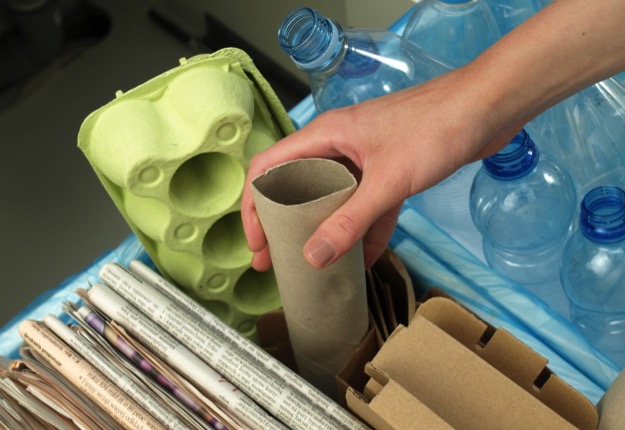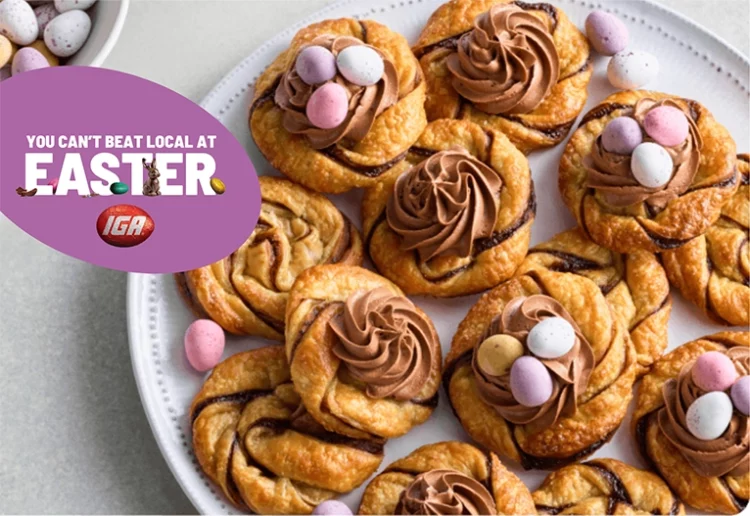Recycling is one of the easiest and most effective ways we can live a sustainable, environmentally responsible life.
Unfortunately, despite everyone having a recycling bin, not everyone knows how to use it properly, and it is predicted that 30% of Australia’s landfill is made up of recyclable goods.
For example, did you know that only hard plastics can go into your recycling bin?
Soft plastics, like plastic bags and cling wrap get caught in the recycling machines, so should always go into your landfill bin (or better still, don’t use them at all!)
To clear the confusion once and for all, Aware Environmental has produced this definitive list of exactly what to recycle, what to put into your regular bin, and to do with the rest of your rubbish, see it here:
Recycable
All paper and cardboard can be recycled, with the following exceptions:
- Padded envelopes
- Photographs
- Thermal fax paper
- Wax coated paper
- Tissues
- Toilet paper
- Nappies
- Wax coated cardboard
Not only is it unhygienic for items containing bodily fluids to be processed alongside other recyclables, the paper fibres in these items are too short to recycle making it too difficult to recover any worthwhile material.
Waxed cardboard is too difficult to recycle.
All firm plastics are safe for recycle bins. Soft plastic however, are not. A list of ‘soft plastics’ include:
- Plastic bags
- Plastic film or cling wrap
- Chip packets
- Toothpaste tubes
- Bubble wrap
- Styrofoam or polystyrene products
- Straws and disposable nappies
Hard plastics that are not containers such as toys or toothbrushes are also not recyclable.
While plastic bags and other soft plastic packaging is sometimes made from a recyclable content, their light-weight nature often results in them getting caught around moving machine parts and jamming them.
You’re best off taking plastic bags back to the supermarket, where they will recycle them in machines especially for plastic bags.
All aluminium and steel packaging can be recycled, including aerosol cans, paint tins (empty and dry), aluminium foil and pie trays.
You can’t recycle the following items:
- Batteries
- Gas bottles
- Wire
- Scrap iron or tin
- Cutlery
- White goods.
Items like batteries, gas bottles, scrap metal or white goods can be taken to specialist recycling points, normally located at your local waste station.
Heavy glass used for packaging, like bottles and jars, can be collected for recycling through the yellow lidded recycling bin. Fine, fragile glass is not ideal for recycling. This includes:
- Drinking glasses
- Ceramics
- Window glass
- Light bulbs
- Mirror
- Heat-proof glass and cookware such as Pyrex.
Why can’t I recycle these items?
The glass used for bottles and jars is heavy duty and durable, while other glass types are designed for specific uses which require them to be more fragile, transparent or heat resistant.
When mixed with recyclable glass, other glass types weaken the new glass products, which is why it is best to dispose of all non-packaging related glass in your general waste bin.
Other rubbish items, like garden waste and food leftovers, make up a further 50% of what goes into landfill in Australia.
Buy a compost bin or a worm farm and help reduce this unnecessary waste of space in our landfill sites – your garden will thank you for it!
Other fun facts about recycling:
- Contrary to popular belief, plastic containers do not need to be cleaned prior to recycling. A quick rinse will stop bad smells in your bin, but is not necessary.
- Recycling is sorted once it arrives at recycling centres, so if you do accidentally make a mistake and put an unrecyclable item into the bin, it won’t stop the rest being recycled.
- Do not put your recyclables in plastic bags; instead place the items loose in your recycling bin. Plastic bags cannot be opened at the recycling facility for safety reasons, and all the goods inside are sent to landfill.
- Make collecting your recyclables at home easier by placing a bin for recyclables in your kitchen, bathroom and laundry. Sorting your recyclables at the point of disposal will help you to recycle more.
Happy recycling!






















4:37 pm
9:24 am
7:52 am
10:05 pm
10:30 pm
7:35 am
10:23 pm
9:05 pm
9:45 am
6:37 pm
4:49 pm
9:07 am
1:45 pm
4:35 pm
7:21 pm
11:41 am
6:00 pm
6:43 pm
1:07 pm
10:57 pm
- 1
- 2
- 3
- »
Post a commentTo post a review/comment please join us or login so we can allocate your points.